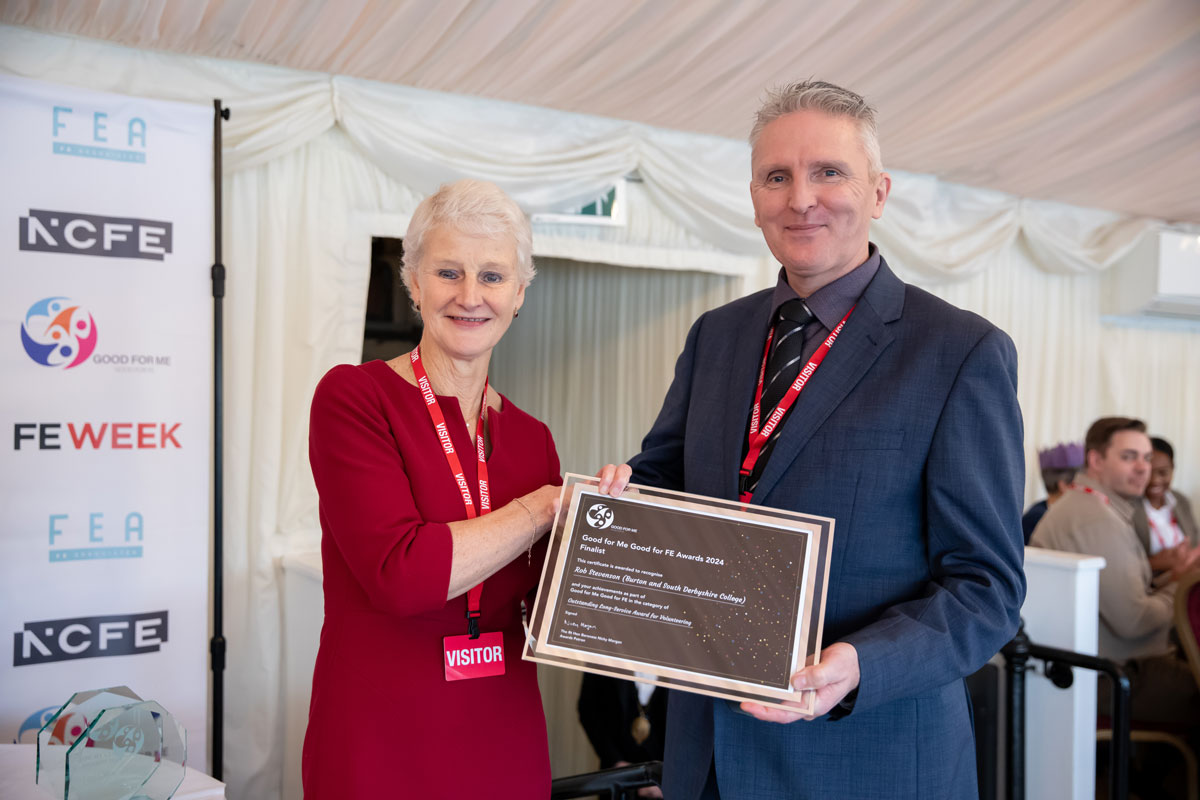Solving the SEND Crisis – Education Committee Launches Major Inquiry | Sector Reaction

The Education Committee has launched a major new inquiry focused on finding solutions to the crisis in special educational needs and disabilities (SEND) provision.
Support for children and young people with SEND
SEN support in mainstream schools and early years settings including:
- Assessing the current quality of SEN support in mainstream schools and early years settings
- Defining what inclusivity in mainstream schools and early years settings should mean and look like in practice
- How can inclusivity and expertise in mainstream schools and early years settings be improved to achieve consistent, high quality SEN support? What is the DfE’s role in this?
- Whether SEN support should be put on a statutory footing and what this would look like in practice
- Outcomes for children and young people with SEND and how these can be improved
- Workforce issues for teachers, SENCOs, specialists, early years practitioners and all those who work with children with SEND
- What substantive training is needed for teachers, teaching assistants and all those who work with children with SEND to improve knowledge of SEND and pedagogical approaches to teaching SEND Children to increase their inclusion in schools?
- The role of and capacity of specialist schools, independent schools and Alternative Provision
Education, Health and Care Plans:
- How can waiting times for EHC Plans be improved?
- What can be done to support parents, carers and children or young people before, during and after the EHC Plan process?
- How can the EHC Plan process be made non-adversarial?
- What alternatives are there to the EHC Plan process? Current and future SEND need
- The 2014 Special Educational Needs and Disabilities (SEND) reforms, introduced by the Children and Families Act envisaged 20 years of change.
- How has SEND need changed over the ten years since 2014 and how will it continue to change over the next ten years? What are specific projections for future SEND need?
- What does the DfE need to do to improve their current and future assessment of SEND need?
Current and future model of SEND provision
- How does SEND provision vary between local areas and what can be done to promote consistency of approach?
- What changes are needed so that local education authorities can effectively plan for SEND school places and to deliver new SEND schools and new SEND school places?
- What can be done to improve the effectiveness of multi-agency and joined up working cross education, health and social care?
- How can specialist provision, especially support for conditions which occur infrequently but give rise to the need to a high level of support and which may be beyond the capacity of individual local authorities, best be provided and commissioned?
- How can excess profit-making in the independent sector be tackled without endangering current provision?
- What is working effectively within the current SEND system and how can best practice be sustained or scaled up?
- How can innovation be encouraged across the system to address the current pressures and challenges?
- changes needed to the curriculum in mainstream schools to enable SEND children to fulfil their potential? If so, what changes are these?
- What has the impact of the 2023 SEND and Alternative Provision Improvement Plan been to date? What needs to be done to ensure further, longer term benefits are achieved?
- At the points on the education pathway that SEND children are at greater risk of leaving school for long term absences, home schooling or exclusion, what reasonable adjustments and EHCP support would enable them to continue education in mainstream schooling?
- What can be done to reduce the disproportionately high exclusion rates for students with SEND?
- How should the health needs of children with SEND best be met while they are at school or in early years settings and who should fund this?
- What steps should be taken to improve the post-16 landscape for students with SEND? What reforms are needed to ensure that all post-16 qualifications meet the needs of students with SEND?
- What steps can local authorities take to ensure funding is in place to meet the transport needs of post-16 students with SEND?
Finance, funding and capacity of SEND provision
- What funding is currently provided and what is needed for early identification of SEND, including in Early Years settings?
- What actions or reforms are needed to achieve financial stability and sustainability, both in the short and longer term, across the SEND system?
What is the effectiveness of Government’s interventions such as the ‘safety valve’ and Delivering better value in SEND programmes, including:
- How have these programmes impacted local authority finances as well as SEND provision and outcomes?
- The statutory override is currently due to end in March 2026. What interventions do local authorities need leading up to March 2026 and what would local authorities like to see beyond March 2026 to ensure long term financial sustainability?
- Is planned capital investment in SEND capacity sufficient and is it best targeted to address need across the country?
- Is reform needed for funding of SEN support provision in schools, where currently the school is responsible for funding the first £6,000 of provision?
- What has been the impact on SEND provision for local education authorities who have issued Section 114 notices?
Accountability and inspection of SEND provision
- What should Ofsted’s new ‘inclusion’ criterion for the inspection of mainstream schools look like?
- How can Area SEND inspections of local authorities be made more effective?
- Whether local education authorities need further powers to ensure that all schools in their area contribute to effective local SEND provision?
- How best to hold all schools, irrespective of how they are constituted or their governance arrangements, to account for their SEND provision?
- The role of other organisations such as the DfE, the Local Government and Social Care Ombudsman and the Care Quality Commission in the accountability system.
Faced with years of increasing demand for SEND support, the cross-party Committee will focus on how to stabilise the system in the short term, and how to achieve long term sustainability with improved outcomes for children and young people. The inquiry will examine every phase of education and development, from the early years through to the age of 25.
The Committee will look at how mainstream schools and other educational settings can be more inclusive to children with SEND by providing high quality support, including changes to the curriculum, defining what inclusivity looks like in mainstream settings, and improving support and training for education practitioners.
Another focus will be increasing the capacity of SEND provision, including finding ways to help local councils plan sufficient SEND school places and examining capital investment in this area.
With many councils facing a parlous financial state due to the huge deficits accrued by spending millions a year on SEND support, and with the statutory override due to end in 2026, the Committee will consider reforms to the way SEND is funded.
MPs will examine the Education Health and Care (EHC) Plan system and look for potential alternatives without reducing the level of support available. They will also look at the effectiveness of multi-agency working across education, health and social care.
With varying quality of provision across the country, the Committee will consider how to make provision more consistent between local authority areas. We will also look for examples of replicable best practice, as well as seeking evidence on how to make Ofsted’s accountability measures more effective.
The Committee will investigate how SEND support is provided in other countries with better outcomes for children, parents and carers. During the inquiry, MPs will hear directly from young people and families about their experiences with the SEND system as well as professionals delivering SEND support.
Education Committee Chair Helen Hayes MP said:
“In recent years, report after report has documented the failures of the SEND system to deliver the support children and their families need. Despite the best efforts of professionals in schools and local authorities, across the country, children are being let down. As a Committee we now want to move beyond simply pointing out the problems and focus on finding solutions that are realistic and practical for the Government to implement.
“This crisis has many symptoms that bleed into the rest of the education system: from attrition in the teaching workforce to soaring levels of pupil absence. There are also symptoms which blight local councils’ budgets – ever increasing spending on transporting pupils to settings far from where they live, and the chaos of money being poured into tribunals that parents are expected to win. It’s widely accepted that many more councils could face effective bankruptcy if change doesn’t come soon.
“There is absolute clarity that as a country we can’t continue with this endless cycle of failure. Turning this ship around will likely take years of careful reform, but the cross-party Education Committee will play our part by making evidence-based recommendations that the government can implement.”
Call for Evidence
The full terms of reference of this inquiry will be available on the Committee’s website. The terms of reference (attached to this email) cover the following themes:
- Support for children and young people with SEND
- Current and future SEND need
- Current and future model of SEND provision
- Accountability and inspection of SEND provision
- Finance, funding and capacity of SEND provision
To inform the Committee’s work on this inquiry, it welcomes written evidence submissions, via its website. The Committee would like to hear from parents and carers, early years settings, schools, local authorities, voluntary sector organisations, professionals, sector bodies and anyone else with an interest in the system of support for children and young people with SEND.
The terms of reference are also available in a number of accessible formats, including British Sign Language, Easy Read and in audio.
Submissions can address some or all of the inquiry’s terms of reference; they should be submitted to the Committee by 23.59 on 30 January 2025.
Sector Reaction
Margaret Mulholland, SEND and Inclusion Specialist at the Association of School and College Leaders, said:
“We welcome the select committee’s focus on this crucial topic. The SEND system in its current form is unsustainable with the level of need greatly outstripping the available funding and resources. This situation leaves children without the timely support that they require, families feeling desperate and frustrated, and schools under immense pressure. These are not new problems and yet meaningful action to address them has so far remained elusive. We look forward to providing evidence to the select committee, seeing its recommendations, and working with the government on solutions which must be implemented with a real sense of urgency.”
Paul Whiteman, general secretary at school leaders’ union NAHT, said:
“Many children with SEND are being failed, despite the best efforts of schools, local authorities and health professionals.
“We already know what many of the issues are, so it is positive that MPs are examining what can be done to fix this broken system.
“School work hard to provide an inclusive environment, but are hamstrung by shortages of the funding, resources and specialists needed to meet a growth in demand.
“As a result, many pupils are not getting the right support, at the right time, or in the right place, and this needs to change.
“Radical reform will be vital, as the committee appears to recognise, but rearranging the deckchairs and moving existing funding around will not cut it – without significant additional investment, any changes are unlikely to be a game-changer.”











Responses